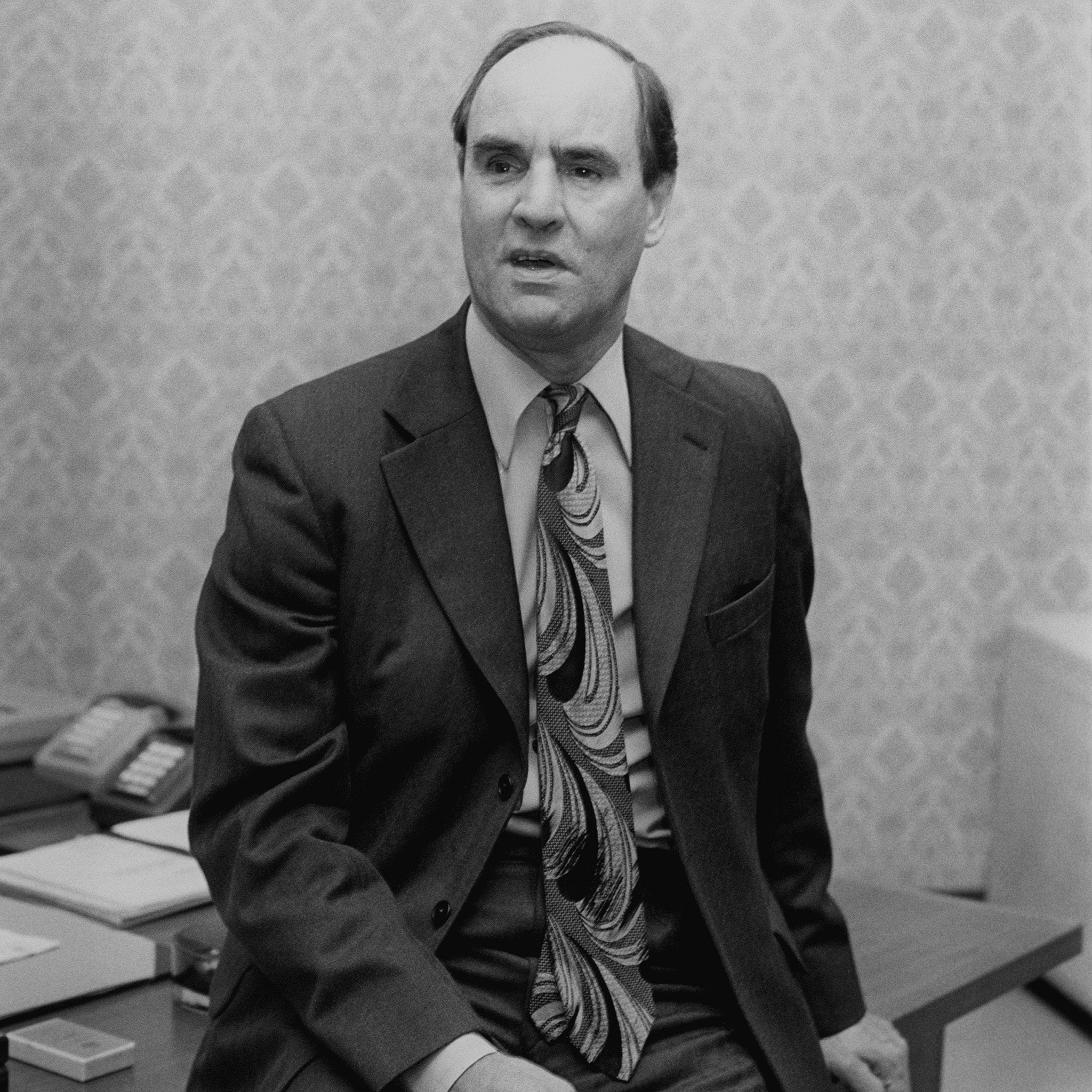Sir Maurice Hodgson: Head of ICI in troubled times whose courage and cool head were crucial in transforming the company’s fortunes
Hodgson achieved all this while also battling near-blindness

As head of ICI, Sir Maurice Hodgson changed the public perception of bosses in the troubled 1970s and ’80s, showing extraordinary determination and ingenuity to reform and arrest the company’s downward spiral and laid the foundations for its resurgence later in the decade under his successors.
He achieved this while also battling near-blindness. He later went on to head British Home Stores and Dunlop.
Hodgson became chairman of Imperial Chemical Industries in 1978, following years of steady decline in profits and creativity and failed takeovers. ICI was Britain’s flagship company, a beacon of British industrial achievement and research excellence, employing over 100,000, but it now appeared to be stagnant and averse to change. Hodgson’s decision to move out of the comfort zone of ICI’s “imperial” past would lead to major new opportunities.
He took over at a time when business conditions were increasingly challenging and ICI stood accused of resting on its laurels. He had already created ripples when he was appointed the company’s first strategic planner in 1966 and began challenging the status quo.
Hodgson had a plethora of ideas, and reviewed the company from top to bottom; he wanted better returns on capital and a more focused approach to production and market areas. He believed the company needed to reduce its reliance on the domestic market and look to Europe and beyond, while improving productivity to compete against new global players and moving away from bulk chemicals towards higher-value products. He stunned many with his decision to abandon ICI’s inefficient production of polyethylene (polythene), one of the company’s proudest inventions.
Following the Winter of Discontent, ICI had lost a third of its UK customers. The urgency for cost-cutting was renewed in 1980 and 1981 by the onset of the recession. High interest rates and a strong pound decimated exports, and ICI fell into deficit for the first time since its creation in 1926. Hodgson and the board took the unprecedented step of cutting dividends, highlighting the depths to which British industry had sunk. Hodgson even met Margaret Thatcher privately to point out that her policies were causing irreparable damage.
In an efficiency drive, 30,000 UK jobs were shed and a drastically smaller management pyramid created. Hodgson was admired for his courage, determination and cool head; he correctly predicted that there would be an upturn in chemicals later in the decade, and his successors duly benefited. His successor, John Harvey-Jones, received huge credit but merely carried through the reforms Hodgson had begun. Harvey-Jones, with his flamboyant style, and helped by an upturn in the business cycle, led ICI to its first billion-pound profit. “For sheer calculated courage, I have never known his equal,” he said of Hodgson.
Born in Bradford in 1919, he was the son of a schoolteacher. Educated at the local grammar school, where contemporaries included the historian Alan Bullock and Denis Healey, Hodgson progressed to Merton College, Oxford, graduating with first-class honours in chemistry. In 1942 he joined ICI’s fertiliser and synthetic products group at Billingham, one of the company’s power centres, which manufactured Synthonia, or synthetic ammonia, for explosives. Within two years he was leading research work related to the atomic bomb. His abilities were recognised with a promotion in 1955 to the new offices in New York.
Returning to the UK, Hodgson worked as head of ICI’s technical department, scrutinising capital expenditure proposals. In 1960 he took up directorship of the heavy organic chemicals division, which ran the key petrochemicals business, rising to a deputy chairman role within four years. He then returned to HQ at Millbank in London as the first general manager for company planning, which reflected his analytical capabilities. In 1970 he joined the board as planning and commercial director and two years later was a deputy chairman.
Hodgson’s progress was nearly ended by failing eyesight following an unsuccessful cataract operation which caused almost total loss of sight in one eye and afflicted the other. He had been a possible candidate for the chairmanship in 1975 but ruled himself out. For a time he could only work by having papers read to him; he bravely chose to have the other eye operated on, noting, like the horse-racing buff he was, that the choice was “double or quits”. Some improvement followed, and he mastered speed-reading to keep up with his workload.
After ICI Hodgson didn’t enjoy the same success, though he headed British Home Stores from 1982-87 until it agreed to merge with Sir Terence Conran’s Habitat Mothercare group. In 1984 he became chairman of the ailing Dunlop Holdings and tried to secure the company’s future with a Japanese rival, Sumitomo, but this failed and he was replaced by Martin Edwardes, former British Leyland chief.
Hodgson received a number of awards including the George E Davis Medal of the Institute of Chemical Engineers (1982); he was also elected a Fellow of the Royal Academy of Engineering in 1979. He served as chairman of the Civil Justice Review advisory committee (1985-88). He enjoyed swimming, fishing and watching horse racing and also pursued a range of other business interests.
Maurice Arthur Eric Hodgson, industrialist; born Bradford 21 October 1919; Kt 1979; married 1945 Norma Fawcett (died 2002; one daughter, one son); died 1 October 2014.
Subscribe to Independent Premium to bookmark this article
Want to bookmark your favourite articles and stories to read or reference later? Start your Independent Premium subscription today.

Join our commenting forum
Join thought-provoking conversations, follow other Independent readers and see their replies